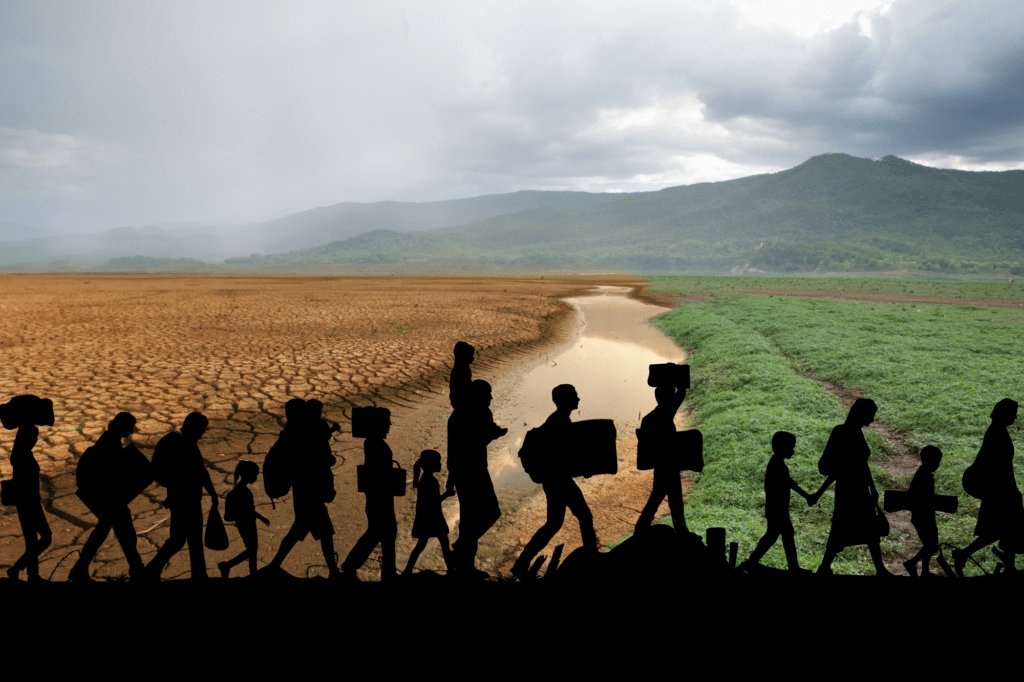
.
The migratory phenomenon is not something new, it has existed forever. But, currently it is necessary to recognize climate change as a key factor in migratory movements.
During a press conference organized by Ethnic Media Services, specialists pointed out that, years ago, it was more evident that migratory movements occurred between neighboring nations, however, currently it is observed that people move towards more distant nations, and even cross continents. This change is caused by the weather conditions the planet is facing.
Given the situation, it is necessary to prevent the abandonment of homes in the countries most vulnerable to adverse weather conditions, considering legal mobility a priority when facing migration crises.
Susan Fratzke, political analyst at the International Program of the Migration Policy Institute, expressed her concern for migrants, as they are people who are forced to leave their countries of origin in search of better living conditions and, due to lack of support to enter legally, they put themselves in risky situations.
“There are very few opportunities to travel legally to seek asylum or protection. If a person is at risk in their home country or elsewhere, the only way they can seek protection is by using an illegal process, because it is very difficult to seek a legal visa and this creates different crises, for example, the humanitarian one in the border? with Mexico?», he pointed out.
And it is that, when leaving their countries, migrants face a lack of food and water, dangerous roads, false promises by "coyotes" or scams, acts of discrimination, while women suffer rape. In the worst case, immigrants will never reach their goal.
Andrew Rosenberg, Associate Professor of Political Science at the University of Florida and author of "Unwanted Immigrants: Why Does Racism Persist in International Migration?" migrants who enter their country, as they consider that they harm it economically and socially.
For Rosenberg, the migratory crisis is not isolated from environmental events in the world. “What we all need to consider is that these crises are not separate. Some have called this situation a "poly-crisis" to highlight the importance of how they are connected, while history and prejudice perpetuate each one."
For her part, Amali Tower, founder and executive director of Climate Refugees, noted that between 80 and 90 percent of refugees arrive from countries vulnerable to climate change. In 2015 alone, he said, 50 countries suffered displacement due to natural disasters.
Tower said that climate change should be a global priority as it is a factor that can modify migratory movements, helping people to remain in their countries of origin, otherwise the climate crisis will continue to put more people at risk.
“Northern countries are currently the most vulnerable to the climate crisis, as they are spending more money covering and securing their border to keep migrants out, rather than addressing the crisis by shoring up people who left their country. to be homeless."
Finally, Hossein Ayazi, political analyst with the Global Justice program at the Othering & Belonging Institute at the University of California at Berkeley, explained that people who do not emigrate also face climate change problems, which should be considered in political decision-making. migratory.
And it is that, many of those who leave their homes in search of better conditions, leave their families with problems at home: food crisis, political, social, economic and health conflicts, so only leaving the country should not be seen as a final solution to so many current crises.
“This is not just about supporting climate refugees who are displaced, but about transforming the conditions that have led to their displacement,” Hossein added.
In this sense, he specified that it is important to address the climate change crisis from the countries of origin, considering practices that help improve environmental aspects, moving away from the use of fossil fuels, after it has been shown that regional economies are being built and locals that do not depend so much on them.
We cannot see the reality we live in as isolated factors, he pointed out. Everything that happens in the countries affects the whole world, which is why migratory movements are the consequence of political and social conflicts, economic crises and the effects of climate change, such as: high or very low temperatures, melting ice, animals in danger of extinction, severe droughts and intense hurricanes, among many others.
Given this, the experts called for measures to be taken so that people have better conditions in their countries, and seek local solutions for the effects of climate change that can help communities in general.
However, we know that migratory movements will always be present and generating legal pathways for migrants is an essential issue.
You may be interested in: The invisibility of Asians in America


